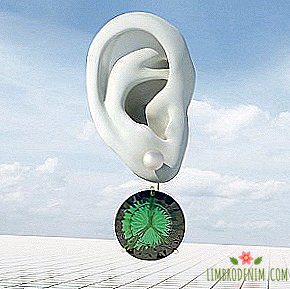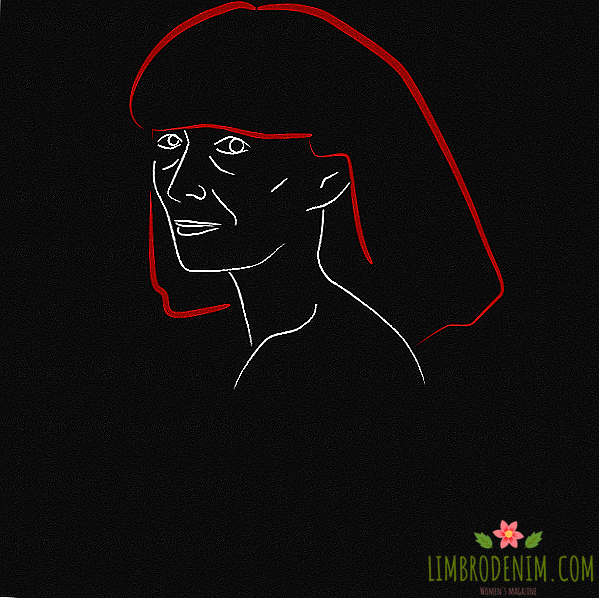Why equal parenthood is so important, but it is so difficult
The basis of love between parents and children lies emotional involvement. Moreover, the mechanism of its occurrence in mothers and fathers is different. The mother, as a rule, begins to feel an emotional connection with the child at the stage of pregnancy: this happens more automatically, under the influence of hormones and instincts, than consciously. As a result, in most cases, by the time a child is born, the mother already has a strong attachment to him, and the most powerful hormonal explosion that occurs during and immediately after birth only strengthens it (of course, it can be different, but this is a topic for a separate large article) . The father needs to spend time with the child in order to earn the natural mechanism of emotional involvement.

Unconditional love for the offspring, as well as the desire to take care of your regular partner, causes oxytocin - the “hormone of a long relationship”, tenderness and affection. The level of oxytocin in the mother increases dramatically in the process of childbirth, and the level of oxytocin in the father is directly proportional to the amount of time spent with the child. In the traditional model of parenting, a mother who has a very high level of oxytocin immediately after giving birth assumes all obligations for child care, and a father whose oxytocin level is significantly lower concentrates on interacting with the outside world, contacting the child, if not minimal, then Definitely much less mother. But in order for his father to increase the level of oxytocin, and hence the power of affection, he needs to spend as much time as possible with the child and his mother.
In most cases, communication between working fathers and children is limited to short meetings in the morning and evening on weekdays and two weekends a week - as a result, affection grows and strengthens much slower than it could if the father had the opportunity to go on leave to care for a child. and take care of him from the first days of life on an equal basis with his mother. Moreover, interaction with the baby is a skill that comes with experience. Fathers involved in routine childcare can easily refute the stereotype established by the traditional model about the inability of “real men” to tenderness, care, sensitivity to the emotional state of the child. Not to mention the fact that they can easily master procedures like changing a diaper and bottle feeding.
In the traditional model, the separation of roles between parents (the mother is the “keeper of the hearth”, is nearby, cares and supports; the father is the “earner”, is far away, performs a disciplining function) generally conforms to stereotypical ideas about gender roles and functions of men and women. In modern society, where the boundaries of gender roles are gradually erased, the form of the family, in which the mother fully serves the needs of the child, and the father provides the family financially and does not participate in the daily routine care of the child, ceases to be relevant. Most actively the equal distribution of responsibilities for the care and upbringing of the child is discussed and implemented in developed countries. There, fathers and mothers, in principle, have the financial opportunity to move to a progressive model of parenthood, so that both partners are equally emotionally involved and share responsibility for the child.
It was only at the end of the 20th century that the fathers were closely considered as independent and not “complementary to the mother” parents.
The truth is that an equitable approach to parenting is really a new form of the family unit, which continues to take shape right now. Even in Western countries, where the relationship between mother and child has been studied in detail, publications and research on the relationship between children and fathers are much less: parents are closely considered as independent, rather than “complementary to the mother” parents, started only at the end of the 20th century. But the results of studies indicate that the active involvement of the father in the care and upbringing of the child greatly influences the development of the infant.
We are talking about fathers who take the most active part in upbringing, take care of children every day and communicate with them. As a result, their children show a higher level of cognitive development starting from five months, and later they are better at school and find it easier to find a common language with those around them. If both parents are actively involved in meeting the needs of the child, he has formed a desire for long-term relationships with other people, he quickly learns to be emotionally involved in relationships and easier to master different types of communication. This greatly enhances the ability to empathy - that is, in general, makes the new person more human. In addition, fathers also receive a positive effect from the maximum involvement in caring for and raising a child: their ability to build horizontal ties also increases, they better withstand stress and even more successfully build a career.
The great advantage of a situation where both parents divide duties equally, in that a child instead of one main object of attachment receives two at once. According to attachment theory, caring, a sense of security, and emotional support that the child feels while being next to the parent is the basis for normal development. And an adult who provides all this becomes for the child a symbol of the stability of the surrounding world.

Grandmothers, from time to time sitting with their grandson, a babysitter - these are objects of affection of the second order, the “village of affections”. Their presence is important and necessary for the child, but their significance is significantly lower than that of the main adult, mother, who regularly takes care of the baby and is with him nearby both during the day and at night. In the traditional model of parenting, the father also enters the “village of affection”, who is responsible for the child only sporadically and does not have a strong emotional connection with him, supported by daily interaction. In the model of equal parenthood, the relationship between the child and both parents, who provide for his needs, is initially established. It is not only about the need to be full and clean - the vital needs of the child include a sense of security (he reaches it primarily through physical proximity and being “on handles”), the need for communication, and a well-ordered routine.
One of the biggest difficulties that mothers of young children face, requiring almost full round-the-clock commitment of strength and attention, is emotional burnout. To him leads a whole heap of reasons - from physical fatigue and exhaustion to the impossibility of distracting and receiving external nourishment for the emotional resource, when the whole life of the mother revolves exclusively around caring for the child. However, the father also bears an additional burden: he feels that the family’s financial well-being is now closed solely on him, so he can abruptly go into work, lose touch with his family and eventually lose the emotional resource that gives him the strength to work effectively. In fact, for each parent, concentrating on only one specific role increases the risk of burnout, exhaustion, and suffering a fiasco in this role.
If both parents evenly share the load, the risk of burnout is reduced for both. A woman who receives sufficient support from her partner in fulfilling parental duties has a resource for self-development, for continuing work, and for any other way of self-realization. As well as a man who understands that he is not the sole breadwinner of the family, there is much more freedom in choosing career options. In addition, if an extraordinary situation arises with either of the two parents, there is a “backup” in the family: when someone cannot cope with their duties, whether it is caring for the child or providing family income, or needs to be made short-term break, partner comes to the rescue. Parents become interchangeable as much as possible.
In a family where both parents work before pregnancy, the mother after the birth of the child is simply forced to go on maternity leave.
One of the most serious reasons that impede the equal sharing of the burden of caring for a child from the first days of his life is the inability for both parents to simultaneously receive paid leave to care for a child. The right of a woman to such leave is most often explained by the fact that immediately after giving birth she simply cannot physically return to work, therefore, in the future she must take on the responsibilities of caring for the child. According to the rules of the Russian labor legislation, any parent or immediate family who takes care of a child (for example, a grandmother or grandfather) can go on leave to care for a child, but only one person has the right to take such leave from the whole family. In a family where both parents work before the pregnancy, the mother after the birth of the child is simply forced to go on maternity leave, and the father thus loses this opportunity.
But even in the case when the mother does not want to take leave or care for the child or does not need it (for example, she is a freelancer working under an employment contract, or a student) and her father has the right to receive it, men in Russia rarely turn to employers with a similar initiative. This sad statistics confirms the report of the Center for Social and Labor Rights of the Russian Federation, published last year. “The current legislation is aimed at a priori separation of social roles based on gender: the mother should be engaged in the family, and the father in the work,” says one of the report’s authors, Sergei Saurin. at work, and women later experience difficulties in returning to the workforce, lose their qualifications, and cannot get a job. " The authors of the report promised to send it for consideration to the Department of Labor and Social Protection of Moscow, but at the moment no new legislative initiatives to combat labor discrimination on the basis of sex have appeared.
How roles and responsibilities are distributed between parents within a family are paradigms that we have learned from childhood. But it is also a conscious choice. Equal parenthood is a model that, for social reasons, was not originally in our head, but the objective possibilities for its existence in society have never been as wide as they are now. However, even today, in order to equally share the burden and the joy of raising a child between parents, conscious work should take place inside the family, and as a result everyone will benefit, both partners, the child, and society.
Photo: basnik_bna - stock.adobe.com, siraphol - stock.adobe.com, creativenature.nl - stovk.adobe.com





